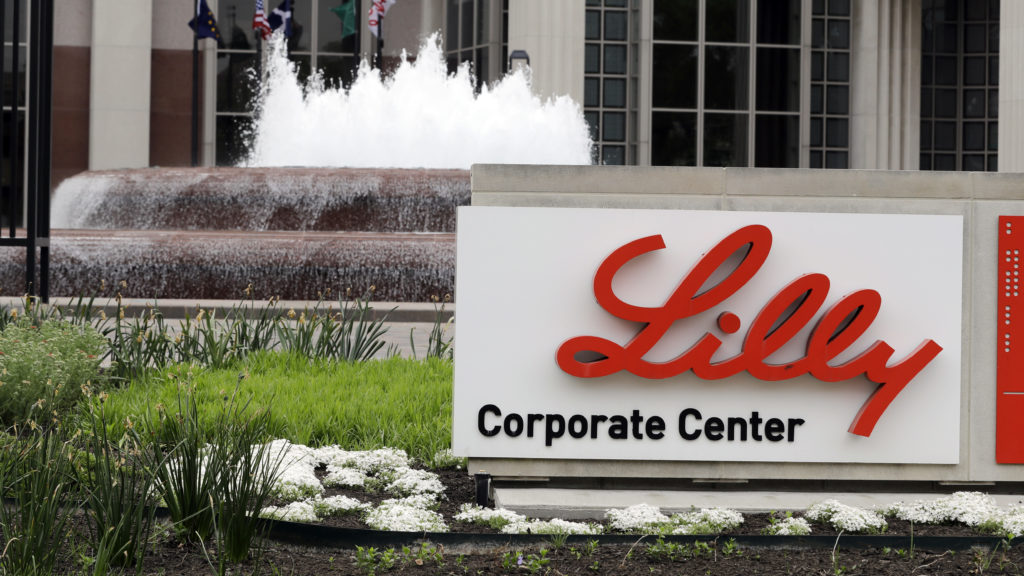
Want to stay on top of the science and politics driving biotech today? Sign up to get our biotech newsletter in your inbox.
Today, lots of regulatory content! We talk about march-in rights and chastening TikTok influencers for their prescription drug #sponcon.
advertisement
The need-to-know this morning
- Coherus Biosciences sold Cimerli, a biosimilar version of the eye drug Lucentis, to Sandoz for $170 million. With the transaction, Coherus said it was exiting the eye disease business to focus on cancer.
- Sagimet Biosciences announced results from a mid-stage study of an experimental treatment for MASH, a progressive liver disease.
- The Genentech unit of Roche returned rights to two experimental drugs for Alzheimer’s disease to AC Immune, following the termination of a development partnership.
- Ionis Pharmaceuticals said its injectable treatment called donidalorsen reduced the frequency of severe tissue swelling “attacks” compared to a placebo in patients with hereditary angioedema. The results achieved the goals of a Phase 3 study, and Ionis plans to submit the drug for regulatory approval.
- Autolus Therapeutics said the FDA accepted its marketing application for obe-cel, a personalized CAR-T therapy to treat adult patients with B-cell acute lymphoblastic leukemia. The FDA will render an approval decision on or before Nov. 16.
The pros and cons of march-in rights
March-in rights are controversial: While some say they can be used to help lower drug prices, others say they are a threat to intellectual property. As STAT’s Ed Silverman explains, the use of march-in rights would essentially mean that if the government has helped fund research used by a drugmaker, it can require that company to license its patent to someone else — increasing competition. But the biopharma industry says the exercise of these rights would infringe on profits and, ultimately, intellectual property rights.
“It’s going to be a problem for small companies, in particular, because they’ll be subject to being shaken down,” said Joseph Allen, executive director of the Bayh-Dole Coalition, a group that represents drugmakers and university technology transfer offices. “It would be a disaster for innovation and won’t cure the problem of drug prices.”
advertisement
Micro-influencers need stricter regulation
There’s little regulatory oversight for influencers that promote prescription drugs. Celebrities like Khloe Kardashian and Aly Raisman are getting paid by drugmakers to endorse medications, as are micro-influencers with as few as 1,000 followers on platforms like Instagram and TikTok. They carry a tremendous amount of power, according to a trio of advocates for transparency in medicine, and more supervision is critical.
This is partly because users can develop “parasocial relationships,” which are one-sided connections where they perceive the influencer as a trusted friend. This makes any advertising from micro-influencers even more potent — and more in need of scrutiny, the authors say.
Novartis chastened by FDA for its TV ad
The FDA has chastised Novartis for making misleading statements on television about Kisqali, a top-selling breast cancer treatment. Regulators said that an analysis of patient-reported outcomes data showed that Kisqali did not actually help “preserve quality of life” or ensure that a patient “lives well.”
“The violation is particularly concerning because the overstated representations about Kisqali’s efficacy could lead patients with advanced or metastatic breast cancer… to believe that Kisquali has been shown to be more effective in treating their condition and symptoms — with respect to overall survival and quality of life — than was actually demonstrated,” the FDA wrote about a television ad from Novartis.
Investigators fault Lilly plant for manufacturing issues
Federal investigators have found that an Eli Lilly plant in New Jersey hasn’t maintained or calibrated some of its equipment, Reuters reports. The company has now asked the FDA for “additional flexibility” specifically to manufacture the migraine medicine Emgality. The drugmaker said that no other products made there were affected; other drugs manufactured at that plant include the diabetes medicine Trulicity and cancer medicines Erbitux and Cyramza.
Lilly now has the highest market capitalization of any biopharma company, having minted money from demand for its obesity and diabetes treatment Mounjaro. But the Indianapolis-based company has received multiple citations for manufacturing issues in its U.S. plants in recent years, Reuters writes. This particular facility, in Branchburg, N.J., has been the subject of a federal probe into poor manufacturing practices and data falsification.
More reads
- FDA adds ‘boxed warning’ for Amgen’s bone loss drug Prolia, Reuters
- Kyverna accelerates into another FDA fast track following IPO plans, FierceBiotech
- AstraZeneca’s rare blood disorder pill approved in Japan, Endpoints
Pssst. If you’ve made it to the end of this article, you might be interested in joining this secret list for an upcoming biotech newsletter. Just some food for thought.
- SEO Powered Content & PR Distribution. Get Amplified Today.
- PlatoData.Network Vertical Generative Ai. Empower Yourself. Access Here.
- PlatoAiStream. Web3 Intelligence. Knowledge Amplified. Access Here.
- PlatoESG. Carbon, CleanTech, Energy, Environment, Solar, Waste Management. Access Here.
- PlatoHealth. Biotech and Clinical Trials Intelligence. Access Here.
- Source: https://www.statnews.com/2024/01/22/biotech-news-eli-lilly-roche-genentech-coherus-ionis-autolus-ac-immune-march-in-rights/?utm_campaign=rss
